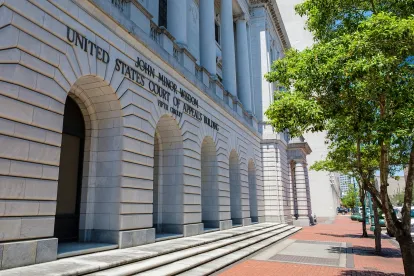Federal courts of appeal issued significant opinions in 2021 involving key procedural matters related to class and collective actions. A groundbreaking decision by the U.S. Court of Appeals for the Fifth Circuit changed the way district courts must handle plaintiffs’ motions for conditional certification in that circuit. Three federal circuits addressed the applicability of the U.S. Supreme Court’s landmark Bristol-Myers Squibb decision to Rule 23 class actions and collective actions brought under Section 216(b) of the Fair Labor Standard Act (FLSA). In an appellate decision on another important procedural matter, the U.S. Court of Appeals for the Third Circuit rejected a district court’s trial-before-certification strategy in a hybrid wage and hour case.
Within the Fifth Circuit, at least, courts will apply a fairer, more workable framework for evaluating whether potential opt-in plaintiffs are similarly situated before granting conditional certification.
Fifth Circuit nixes rubber-stamped FLSA collective
The Fifth Circuit (which covers Louisiana, Mississippi, and Texas) shunned the familiar two-step, conditional certification-followed-by-decertification process commonly followed by federal courts in FLSA collective actions. The appeals court announced that district courts must review the factual record developed by the parties to determine whether plaintiffs meet the “similarly situated” standard before notice goes out to potential opt-in plaintiffs. The Fifth Circuit rejected the commonplace doctrine that courts should avoid considering any merits discovery at the conditional certification stage.
The immediate effect of the decision has been that, for collective actions brought in the Fifth Circuit, plaintiffs no longer are able to issue notice to potential opt-in plaintiffs based merely on the allegations raised in the complaint. Instead, a district court must decide what discovery is warranted to make the threshold determination on whether plaintiffs are actually “similarly situated” to the proposed collective they seek to represent. As a result, a defendant can obtain more information about the extent of a potential class early in the case, allowing the employer to make critical strategic decisions at an earlier stage of litigation rather than wait until it can move to decertify a conditionally certified class.
Within the Fifth Circuit, at least, courts will apply a fairer, more workable framework for evaluating whether potential opt-in plaintiffs are similarly situated before granting conditional certification. For example, a federal district court in Texas applying the new framework denied conditional certification to a proposed collective of approximately 1,700 restaurant servers alleging minimum wage violations under the FLSA. Pre-certification discovery showed the individualized nature of the employees’ claims and the absence of a uniform employer policy that would render classwide resolution feasible.
District courts outside the Fifth Circuit may be persuaded to adopt the new framework, or something like it. At the very least, district courts will be asked to address the question of whether to adopt the new approach, and appellate review of those decisions will eventually create a conflict between the circuits ripe for Supreme Court review.
Courts ponder jurisdiction over out-of-state class members
In 2017, the Supreme Court held in Bristol-Myers Squibb Co. v. Superior Court of California that a state court could not exercise specific personal jurisdiction over nonresident plaintiffs’ claims against a nonresident company. Federal courts have grappled ever since with whether this holding, issued in the context of a mass tort action, also applies to class action suits brought under Rule 23 and Section 216(b) collective actions. Three federal circuit courts of appeal addressed the issue in 2021, adding to the growing body of case law.
Collective actions. An August decision is perhaps the most significant ruling to date — and the most important for multistate employers potentially at risk of nationwide representative lawsuits, class or collective. In a closely watched case, a divided three-member panel of the Sixth Circuit ruled that the Bristol-Myers holding does apply to collective actions. Therefore, the district court could not exercise personal jurisdiction over the claims of nonresident members of a putative collective. This marked the first federal appeals court decision to consider the Supreme Court’s Bristol-Myers holding in an FLSA collective action. That the ruling came from the Sixth Circuit, a hotbed of sorts for cases addressing Bristol-Myers jurisdiction, is especially important.
The U.S. Court of Appeals for the Eighth Circuit, citing Bristol-Myers, held that personal jurisdiction is to be decided on a “claim-by-claim basis.” In that case, two consultants for a Florida-based company (one a Florida resident, the other, a New York resident) filed a putative FLSA collective action in federal court in Minnesota, seeking pay for time spent traveling to various live events in the United States, including several in Minnesota. The plaintiffs contended that because the court had jurisdiction over the claims that arose based on travel to Minnesota, the court could exercise jurisdiction over all of the travel time claims against the employer, including those arising outside of the forum state. In its August decision, the Eighth Circuit panel pointed out that the FLSA does not contain a nationwide service-of-process provision and held the Minnesota district court properly refrained from exercising personal jurisdiction over claims arising from events elsewhere that had no connection to Minnesota.
Class actions. Following up on its decision related to collective actions, the Sixth Circuit reached a different conclusion with respect to class actions, holding in a Telephone Consumer Protection Act (TCPA) case that Bristol-Myers does not apply to Rule 23 class action suits and, therefore, only the named plaintiff in a class action must satisfy personal jurisdiction requirements. The appeals court found a district court had personal jurisdiction over a defendant as to all of the claims brought by class members.
Class and collective actions have fundamental differences, the Sixth Circuit observed, describing the differences in detail. Class and collective actions call for “different approaches to personal jurisdiction,” it stated. In so ruling, the Sixth Circuit joined the U.S. Court of Appeals for the Seventh Circuit, which had ruled in another TCPA suit that “the principles announced in Bristol-Myers do not apply to the case of a nationwide class action filed in federal court under a federal statute.”
Three other circuit courts have punted on the issue thus far. Most recently, the U.S. Court of Appeals for the Ninth Circuit declined an invitation to directly address the issue on the merits and remanded the case to the district court to address the Bristol-Myers defense to certification in the first instance. (This was the approach taken by the Fifth and the D.C. Circuits as well.)
The remanded litigations likely will end up in the circuit courts again, perhaps creating a circuit split on the applicability of Bristol-Myers to Rule 23 class actions. That outcome could prompt the Supreme Court to take up the question and issue a definitive ruling.
Third Circuit rejects trial-before-certification in hybrid action
In October, the Third Circuit addressed thorny procedural issues raised by “hybrid” wage and hour actions. In these actions, plaintiffs seek certification of both an FLSA collective and a Rule 23 class pursuant to claims brought under state wage and hour law. The appeals court ruled that a writ of mandamus was appropriate where the district court scheduled a trial on plaintiffs’ FLSA collective claims before deciding on Rule 23 class certification.
The Third Circuit reasoned that the district court’s plan to try the main factual issue in the FLSA claim would encroach on the merits of a Rule 23 class action that was still without a certified class. Rule 23’s history confirms that a post-trial certification decision is strongly disfavored, the appellate panel observed, and seven circuits have held that “Rule 23 requires class certification prior to a trial on the merits.” The panel noted the Third Circuit and three other circuits have “occasionally blessed a trial-before-certification approach,” but added that these circuits had not gone quite so far, explaining it has “cabined it to cases in which the defendant consents” and “consistently spurned a forced trial-before-certification procedure.” Here, the appeals court instructed the district court to “conduct a rigorous examination of the factual and legal allegations underpinning the claims before deciding class certification.”
Data breaches are a continually rising concern for employers and with good reason, given the ever-expanding uses of data, the growing virtual workforce, the sharp rise in breach incidents, and the prospect of significant classwide liability that can result.
Circuits address standing requirement for data breach actions
Employers continue to face data breach class actions arising from the exposure of employees’ or consumers’ sensitive personal and health information. In 2021, several circuit courts weighed in on the critical question of what constitutes “injury” sufficient to confer standing to sue.
In February 2021, the Eleventh Circuit weighed in on the hotly disputed question of whether plaintiffs in a data breach class action can establish standing if they only allege a heightened “risk of future harm.” In the past few years, the Third, Sixth, Seventh, Ninth, and D.C. Circuits generally have found standing, while the First, Second, Fourth, Fifth, and Eighth Circuits have found no standing where a plaintiff only alleges a heightened “risk of future harm.” Addressing the issue for the first time, the Eleventh Circuit relied heavily on the Eighth Circuit’s analysis and concluded the plaintiff failed to allege either that the data breach placed him in a “substantial risk” of future identify theft or that identify theft was “certainly impending.”
In another case, U.S. Court of Appeals for the Second Circuit affirmed the dismissal of state-law claims filed against a mental healthcare provider following the company’s inadvertent disclosure of sensitive personally identifiable information (PII) of 130 current and former employees. Three employees whose information had been shared in the email filed a class action complaint against the employer alleging state-law claims for negligence, negligence per se, and statutory consumer protection violations on behalf of classes in several states. Although the Second Circuit found that, in the context of unauthorized data disclosures, plaintiffs may establish an Article III injury in fact based solely on a substantial risk of identity theft or fraud, the employees here failed to show a substantial risk because there was no evidence the PII was targeted or obtained by a third party or any evidence of data misuse. The employees’ claims of future risk of identity theft were not substantial enough to confer standing.
Data breaches are a continually rising concern for employers and with good reason, given the ever-expanding uses of data, the growing virtual workforce, the sharp rise in breach incidents, and the prospect of significant classwide liability that can result. The lack of clarity on standing issues has made it difficult for businesses to assess the risk of litigation and its associated costs in the wake of a data breach incident.






 />i
/>i

